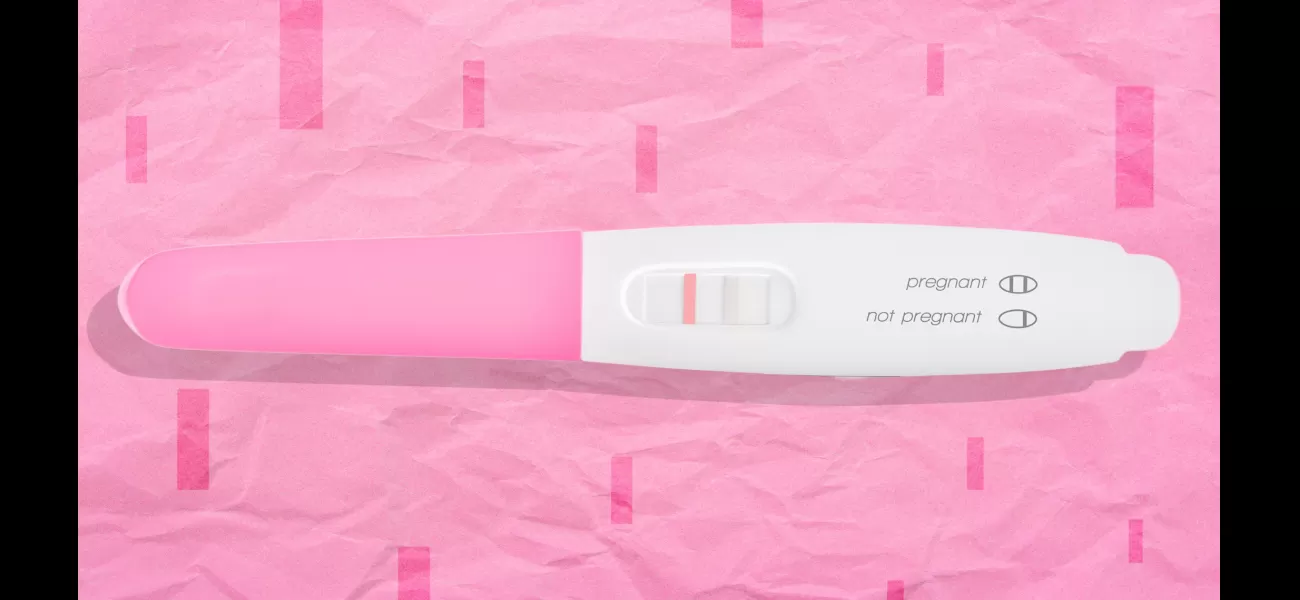The show Emily in Paris' fake pregnancy plot is not as prevalent as you may believe.
Emily in Paris' newest season explores the subject, but is it realistic?
August 17th 2024.

When you're eagerly waiting for the results of a pregnancy test, the thought of a false positive probably doesn't even cross your mind. But in the popular show Emily in Paris, Camille experiences just that. After previously believing she was pregnant with her ex-boyfriend's baby, Camille visits her doctor in the new episodes and learns that she was never actually pregnant.
According to her doctor, this is a rare occurrence but can happen due to various reasons. For instance, Camille's recent stress and medication could have affected the result of her home test. The doctor advises her to wait a day or two and repeat the test to confirm the results.
Pregnancy tests are generally reliable, but it's important to take them at the right time. Obstetrician Claire Mellon suggests waiting until your period is due or late before taking a test, as this reduces the chances of a false positive. She also recommends taking the test first thing in the morning when the urine is more concentrated.
The pregnancy hormone, human chorionic gonadotropin (HCG), can be found in blood and urine and is responsible for the positive result on a pregnancy test. However, home tests have become so sensitive that they can pick up even tiny amounts of this hormone, leading to false positives. That's why it's best to do another test a few days later to confirm the results.
There are various reasons for false positive pregnancy tests, including taking one after a recent miscarriage. This is because there may still be some tissue left behind, and it's important to follow up with a doctor to rule out any complications. Additionally, fertility treatment, peri-menopause, and certain medications can also lead to false positives.
In rare cases, drugs can affect the accuracy of a pregnancy test. For example, fertility drugs and certain antidepressants may cause false positives. It's crucial to wait at least two weeks after taking these medications before getting tested.
While the storyline in Emily in Paris may make it seem like false positives are common, they are actually quite rare. So, if you're worried about getting a false positive, don't panic. If you do experience one, it's always best to follow up with a doctor for further testing and clarification.
Have you ever experienced a false positive pregnancy test? We would love to hear your story. Please email us at email to share your experience.
According to her doctor, this is a rare occurrence but can happen due to various reasons. For instance, Camille's recent stress and medication could have affected the result of her home test. The doctor advises her to wait a day or two and repeat the test to confirm the results.
Pregnancy tests are generally reliable, but it's important to take them at the right time. Obstetrician Claire Mellon suggests waiting until your period is due or late before taking a test, as this reduces the chances of a false positive. She also recommends taking the test first thing in the morning when the urine is more concentrated.
The pregnancy hormone, human chorionic gonadotropin (HCG), can be found in blood and urine and is responsible for the positive result on a pregnancy test. However, home tests have become so sensitive that they can pick up even tiny amounts of this hormone, leading to false positives. That's why it's best to do another test a few days later to confirm the results.
There are various reasons for false positive pregnancy tests, including taking one after a recent miscarriage. This is because there may still be some tissue left behind, and it's important to follow up with a doctor to rule out any complications. Additionally, fertility treatment, peri-menopause, and certain medications can also lead to false positives.
In rare cases, drugs can affect the accuracy of a pregnancy test. For example, fertility drugs and certain antidepressants may cause false positives. It's crucial to wait at least two weeks after taking these medications before getting tested.
While the storyline in Emily in Paris may make it seem like false positives are common, they are actually quite rare. So, if you're worried about getting a false positive, don't panic. If you do experience one, it's always best to follow up with a doctor for further testing and clarification.
Have you ever experienced a false positive pregnancy test? We would love to hear your story. Please email us at email to share your experience.
[This article has been trending online recently and has been generated with AI. Your feed is customized.]
[Generative AI is experimental.]
0
0
Submit Comment





